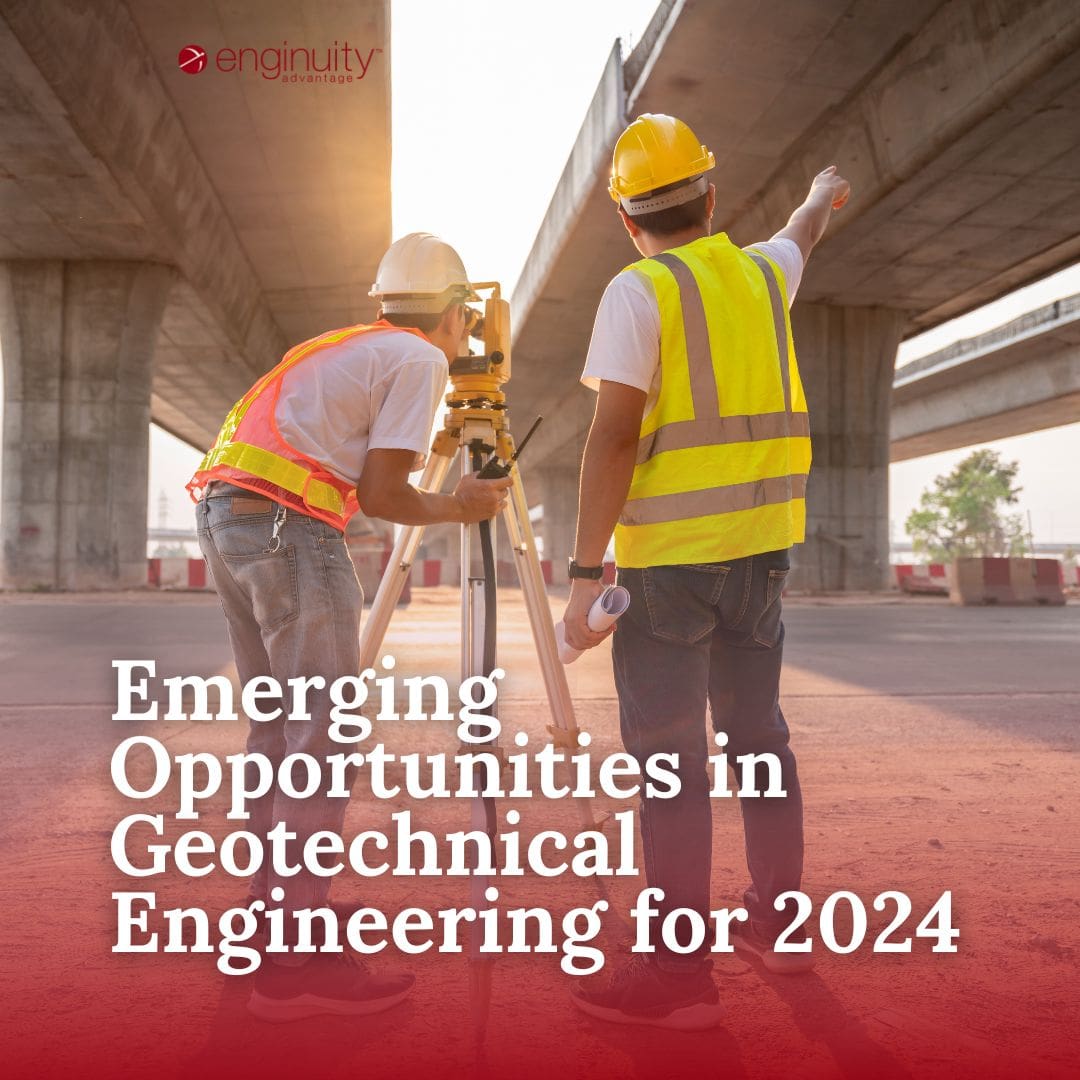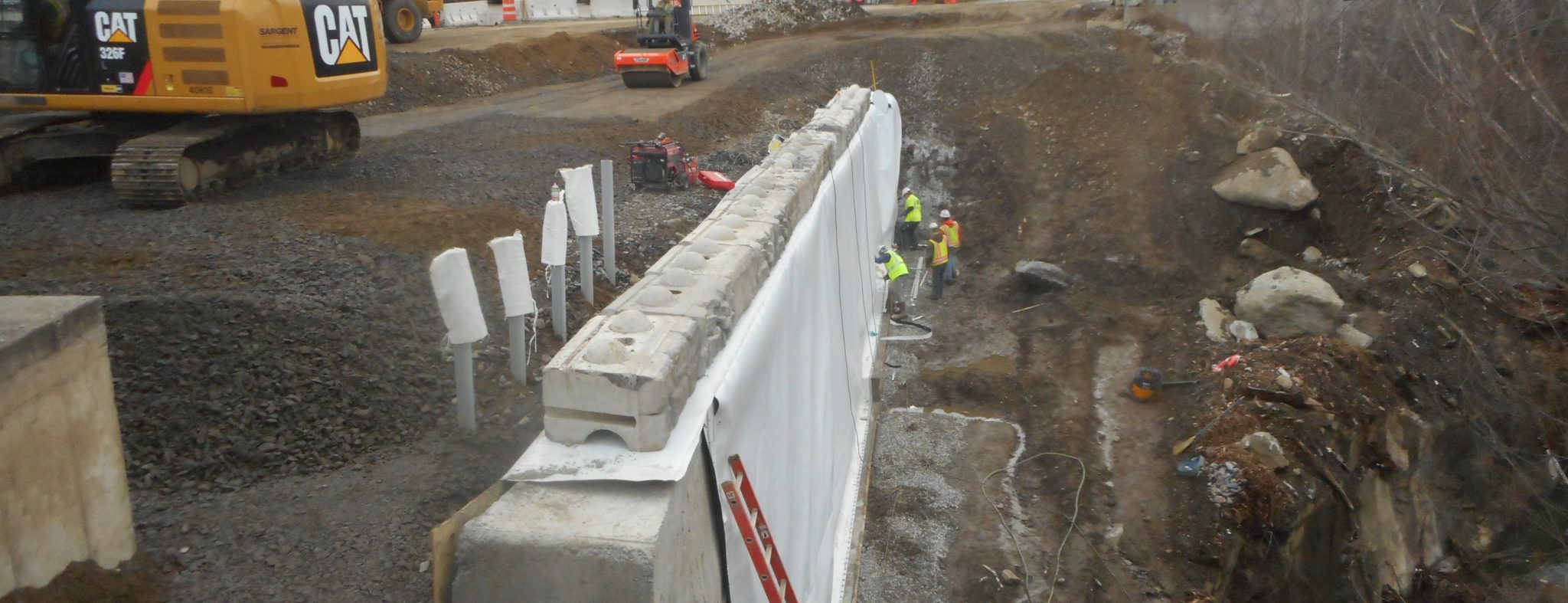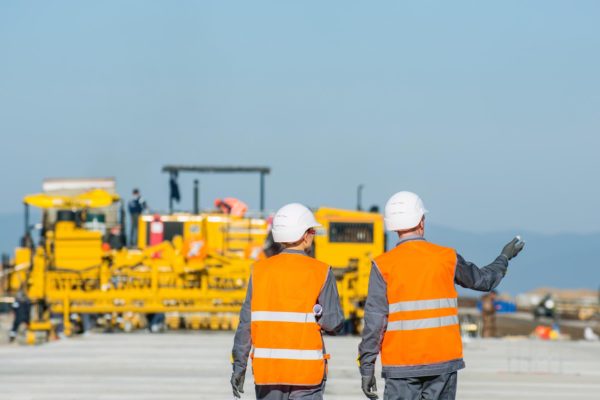Tailings Engineer: Crucial Experience for Sustainable Waste Administration in Mining
Tailings Engineer: Crucial Experience for Sustainable Waste Administration in Mining
Blog Article
Comprehending the Necessary Function of the Geotechnical Sector in Modern Building And Construction Projects and Infrastructure Advancement
The geotechnical sector is a cornerstone of contemporary building and framework growth, providing important understandings right into soil actions that directly influence project results. Via sophisticated dirt assessments and innovative design options, geotechnical experts not only make certain structural integrity however likewise address sustainability concerns amidst advancing ecological standards. As infrastructure demands expand and new challenges arise, the importance of this area becomes progressively noticeable. What implications might these developments have for future projects and the overall security of our developed environment?
Importance of Soil Assessment
Soil assessment plays a critical role in the geotechnical market, acting as the foundation for educated decision-making in building jobs. Accurate dirt evaluation is crucial for establishing the suitability of a website for various kinds of structures, consisting of residential homes, business buildings, and bridges. By examining dirt composition, thickness, toughness, and dampness content, engineers can expect prospective difficulties and reduce risks connected with ground instability, disintegration, and settlement.
The evaluation process normally includes a collection of examinations and monitorings that provide vital info concerning the subsurface problems. This data educates the style and building and construction procedures, making certain that frameworks are improved solid ground with sufficient support. Additionally, understanding the soil profile makes it possible for designers to choose appropriate building and construction approaches and materials, maximizing resource use and lessening costs.
Along with making sure structural honesty, soil evaluation adds to environmental sustainability. By recognizing possible contamination or adverse results on surrounding environments, engineers can implement strategies to safeguard these natural deposits. Overall, thorough soil evaluation is indispensable in the geotechnical field, underpinning the safety, efficiency, and environmental obligation of building jobs.
Secret Geotechnical Strategies
A selection of key geotechnical strategies are used to enhance the stability and evaluate and efficiency of building and construction sites. One fundamental approach is soil tasting and testing, which permits engineers to establish the physical and chemical residential properties of the ground. This information is critical for making informed choices pertaining to foundation layout and construction methods.
An additional necessary strategy is site characterization, which involves the comprehensive evaluation of dirt and rock conditions via methods such as borehole boring and in-situ screening. Methods like Standard Infiltration Examinations (SPT) and Cone Infiltration Tests (CPT) give beneficial information on soil stamina and stratigraphy.
Ground improvement strategies, such as soil stablizing and grouting, are additionally important in improving the load-bearing capacity of weak soils. These approaches can mitigate negotiation and boost general website problems.
In addition, incline security evaluation is essential for recognizing potential landslide risks and guaranteeing the safety of excavations. This analysis commonly utilizes numerical modeling and limit balance methods to forecast dirt behavior under various conditions.
Incorporating these geotechnical strategies right into building and construction planning not only maximizes project end results but additionally guarantees the long-term sustainability of framework development.
Influence On Construction Safety

Moreover, effective geotechnical engineering involves carrying out mitigation techniques for recognized dangers. This may include soil stablizing strategies, retaining structures, or drainage systems to ease hydrostatic pressure. By resolving these factors, building groups can decrease the probability of accidents and improve worker special info security.
Furthermore, constant monitoring of site problems is crucial during building and construction. Geotechnical tools can give real-time data concerning ground activity and security, permitting prompt interventions when required.
In significance, the geotechnical sector plays an essential role in protecting building tasks. By focusing on ground stability and using rigorous assessment methods, the geotechnical industry not just shields the workforce yet likewise adds to the durability and reliability of built framework.
Sustainability in Geotechnical Practices

Additionally, geotechnical designers are currently utilizing sophisticated technologies, such as geosynthetics, which improve soil security while decreasing the volume of product called for. This not only preserves resources yet likewise leads to much less waste generation (tailings engineer). The integration of lasting style concepts right into geotechnical engineering motivates the use of renewable resource resources in building procedures, additionally reducing carbon discharges
By performing these evaluations, geotechnical experts can establish methods that minimize unfavorable impacts, ensuring compliance with environmental laws. Generally, the focus on sustainability within geotechnical techniques not only contributes to the longevity and strength of framework however also advertises an accountable method to land and resource monitoring.
Future Trends in Geotechnical Design
Technology is driving the future of geotechnical engineering, as arising approaches and technologies improve the market. The combination of advanced data analytics and expert system is set to transform website investigation and danger evaluation, allowing engineers to make even more enlightened choices based upon real-time data. Moreover, the usage of geosynthetic products is getting grip, supplying lasting solutions that improve soil stability and decrease environmental effect.
An additional significant fad is the adoption of automated and robot systems for my explanation tracking and construction processes. These technologies not just enhance accuracy yet additionally enhance safety and security by decreasing human involvement in harmful atmospheres. Furthermore, the implementation of Structure Information Modeling (BIM) in geotechnical design helps with improved collaboration among stakeholders, maximizing job distribution and minimizing expenses.
As environment adjustment poses new challenges, the industry is increasingly concentrating on strength and flexibility in layout practices, making sure facilities can endure severe weather condition events. Ultimately, the ongoing fad toward sustainability will drive advancement in environmentally friendly products and techniques, straightening geotechnical design with more comprehensive environmental goals. Jointly, these patterns will form an extra reliable, sustainable, and my explanation durable geotechnical landscape for future projects.
Conclusion

The geotechnical market is a keystone of modern-day building and construction and framework advancement, supplying critical insights right into dirt habits that directly influence job end results. tailings engineer.Soil analysis plays a critical duty in the geotechnical industry, offering as the structure for educated decision-making in building jobs. Overall, extensive soil assessment is important in the geotechnical area, underpinning the safety and security, performance, and environmental duty of construction jobs
Building security is considerably influenced by geotechnical methods, as the stability and integrity of the ground directly influence the general safety and security of a building website.In verdict, the geotechnical market is vital in modern-day building and framework growth, providing important evaluations that ensure architectural honesty and safety and security.
Report this page